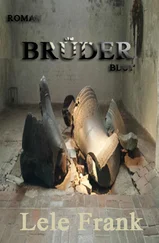Frank Tallis - Vienna Blood
Здесь есть возможность читать онлайн «Frank Tallis - Vienna Blood» весь текст электронной книги совершенно бесплатно (целиком полную версию без сокращений). В некоторых случаях можно слушать аудио, скачать через торрент в формате fb2 и присутствует краткое содержание. Жанр: Исторический детектив, на английском языке. Описание произведения, (предисловие) а так же отзывы посетителей доступны на портале библиотеки ЛибКат.
- Название:Vienna Blood
- Автор:
- Жанр:
- Год:неизвестен
- ISBN:нет данных
- Рейтинг книги:3 / 5. Голосов: 1
-
Избранное:Добавить в избранное
- Отзывы:
-
Ваша оценка:
- 60
- 1
- 2
- 3
- 4
- 5
Vienna Blood: краткое содержание, описание и аннотация
Предлагаем к чтению аннотацию, описание, краткое содержание или предисловие (зависит от того, что написал сам автор книги «Vienna Blood»). Если вы не нашли необходимую информацию о книге — напишите в комментариях, мы постараемся отыскать её.
Vienna Blood — читать онлайн бесплатно полную книгу (весь текст) целиком
Ниже представлен текст книги, разбитый по страницам. Система сохранения места последней прочитанной страницы, позволяет с удобством читать онлайн бесплатно книгу «Vienna Blood», без необходимости каждый раз заново искать на чём Вы остановились. Поставьте закладку, и сможете в любой момент перейти на страницу, на которой закончили чтение.
Интервал:
Закладка:
They pulled apart-both of them shocked by their mutual abandon.
To conceal her shame, Clara buried her head in Liebermann's chest.
“I am sorry,” said Liebermann. “Forgive me…”
He looked up to the heavens but saw only the underside of the great architrave, from which massive icicles were suspended. He was reminded of the unfortunate Damocles, whose fate it was to attend a banquet seated beneath a sword hanging by a single hair.
“We are to be married,” said Clara softly. “If you wanted… I…”
“No,” said Liebermann. “No, it would be inexcusable. I will not take advantage of you. I will never take advantage of you.”
Clara nestled closer. Liebermann lifted his chin to accommodate her head. He could feel the hot pulse of her shallow exhalations on his bare neck. It was intolerably exciting. Even so, he did not move. Instead he stood still, gazing over Clara's hat at the locked, frozen world-his consciousness attenuated painfully between polarities of fire and ice.
22
ANDREAS OLBRICHT STOOD IN the middle of his studio. Condensation had frozen onto the windows, making them opaque and subduing the light. Propped up against the walls were some wooden frames for stretching canvases, some finished paintings, and a large full-length mirror. Olbricht studied his reflected image: a short man, wearing a soft cap and a brown, paint-spattered smock of coarse material. He affected a dignified pose.
The artist embarks upon the act of creation.
His gaze lingered on a smear of vermilion.
Turning, he walked across the bare floorboards to his table, where he examined his array of pigments: ocher, malachite, madder lake, raw sienna. The malachite caught his attention. He tipped some of the emerald powder into the mortar bowl and ground it with a wooden pestle. As he worked, he remembered his conversation with Von Triebenbach about Herr Bolle's commission. What scene from The Ring would he choose? The gods engulfed by fire, the ride of the Valkyries, Siegfried's funeral pyre? At that time he had been almost certain that the subject of the commission would be something heroic. Yet, as he worked on the preliminary sketches, another, quite different scene kept entering his mind-the tableau with which The Ring Cycle opens: the three Rhine maidens-Woglinde, Wellgunde, and Flosshilde-and the dwarf Alberich. This scene had kept on returning, asserting itself with something close to willfulness. Eventually he conceded, content to assume that a great work of art was struggling to be born.
Olbricht mixed some linseed oil into the powdered malachite and poured the mixture onto his palette. Then he turned and looked at the large canvas on his easel. The work was in its very early stages. Only the top left-hand corner had been colored with brushstrokes; the rest was still in sketch form. The figures had been executed using a red crayon, and Olbricht congratulated himself that the effect was not unlike a well-known Leonardo da Vinci cartoon.
On the table, next to the pestle and mortar, was a notebook in which he had copied out some of Wagner's original stage directions.
In the depths of the river Rhine.
A greenish twilight, brighter toward the top, darker toward the bottom. The upper part is filled with swirling waters… In all directions steep rocky reefs rear up from the depths… There is a reef in the middle of the stage that points a slender finger up into the denser water where the light is brighter…
Olbricht diluted his malachite with a few more drops of linseed oil and mixed it in with a stiff hog's-hair brush.
He was pleased with his Rhine maidens. They looked like good-natured, big-hearted German girls. Healthy, buxom, and carefreepossessed of an innocent charm. If the same scene had been treated by one of the Secessionists, it would have looked very different indeed. Someone like Klimt (or one of his degenerate associates) would have transformed the Rhine maidens into emaciated, orgiastic water nymphs, naked, with tiny breasts and exposed genitalia. The modernists were incapable of dignifying the female form-they could only degrade it. Their work was obscene.
Herr Bolle was a sensible man-a man who cherished traditional values. He would want his Rhine maidens to be stolid, chaste, and pure.
In a rocky hollow, Olbricht had sketched what would eventually become a giant nugget of gold. He considered the pigments he would use: lead-tin yellow, lead white, and iron oxide. He imagined how the amber glow would penetrate into the dark green depths. He let his gaze drop and allowed it to settle on the figure of Alberich-the Nibelung dwarf-climbing out of a dark rift in the riverbed.
The Rhine maidens were the guardians of the Rheingold, sacred treasure from which might be fashioned a ring that would give the wearer ultimate power. But, so the legend ran, such power could be achieved only by first renouncing love. The Rhine maidens were negligent in the exercise of their duty, because they believed that no thief would be prepared to pay such a high price. Who would possibly forswear the joys of love in exchange for earthly power?
Olbricht took a step closer to the canvas and squatted to look more intently at the dwarf who was clawing his way out of the crevice like a venomous reptile-his bulging-eyed stare fixed on the giant nugget.
Was it so remarkable that a creature spurned, taunted, and considered misshapen should have any difficulty making such an exchange? Love for power?
It was not so remarkable.
23
HERMANN ASCHENBRANDT SAT IN a wicker chair next to the piano, listening intently. The prospective pupil had written to Aschenbrandt after he had heard the composer's D minor String Quintet (“The Invincible”) performed at the Tonkunstlerverein. The letter had been full of enthusiastic praise, and the young man had expressed a keen desire to begin composition lessons as soon as possible. Aschenbrandt agreed to an initial meeting, but now that his admirer was seated next to him at the piano, Aschenbrandt was not altogether sure that Herr Behn's musical instincts and his own were similar after all. It had been a very misleading letter.
The young man was halfway through his Fantasia in B-flat Major. The piece had begun with an improvisatory first movement, vaguely reminiscent of Chopin. But then it had evolved-through some tortured key changes-into a torpid, directionless adagio. The melody meandered over a muddy bass, and its fussy turns and grace notes suggested the east: not the East of the Arabs or the Chinese but the more local east of Hungary, Galicia, and Transylvania. Aschenbrandt was finding it slightly irritating, like a mosquito complaining in his ear.
“Yes, yes…,” he said impatiently, pushing back a fine strand of white-blond hair. “I understand. Perhaps we could now hear the final movement?”
Behn's fingers slowed and he took his hands off the keyboard.
“Oh, there is an interesting modulatory passage-in just a few bars.” He began to turn the sheets of manuscript nervously.
“Herr Behn,” said Aschenbrandt tartly. “The last movement, if you would.”
“Yes,” said the young man. “I'm sorry. Of course.”
Behn found the appropriate page and began playing. Again, the music sounded like Chopin. However, Aschenbrandt could not help noticing how the melody persistently struggled to escape from its harmonic ground. It pitched and tumbled around the very edges of tonality-like the undisciplined and frantic scrapings of a gypsy fiddler! Aschenbrandt made a closer study of Behn's physiognomy.
Behn was a small, thin man, with sloping shoulders. His complexion was definitely swarthy, and those eyebrows… the way they almost touched in the middle. Yes, it was all beginning to make sense.
Читать дальшеИнтервал:
Закладка:
Похожие книги на «Vienna Blood»
Представляем Вашему вниманию похожие книги на «Vienna Blood» списком для выбора. Мы отобрали схожую по названию и смыслу литературу в надежде предоставить читателям больше вариантов отыскать новые, интересные, ещё непрочитанные произведения.
Обсуждение, отзывы о книге «Vienna Blood» и просто собственные мнения читателей. Оставьте ваши комментарии, напишите, что Вы думаете о произведении, его смысле или главных героях. Укажите что конкретно понравилось, а что нет, и почему Вы так считаете.












